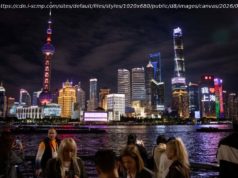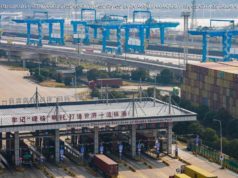Chinese leader Xi Jinping has reacted to American pressure with a level of desperation that is good for neither Washington nor Beijing
This story is published in a content partnership with POLITICO. It was originally reported by William Pesek on politico.com on October 16,2018.
Five years ago, China’s Xi Jinping rocked the Communist Party establishment by pledging to let markets play a “decisive role” in decision making. Reformists rejoiced as President Xi signalled a revival of Deng Xiaoping’s pro-capitalism revolution.
Things have not gone as planned. First, Xi slow-walked steps to reduce China’s reliance on runaway credit, debt and an antiquated state sector. He prioritised short-term growth over long-term upgrades. And then Donald Trump came along to imperil both objectives.
Initially, Xi’s government figured the president was bluffing. Beijing’s calculation was that, sure, Trump might slap some tariffs on Chinese goods, but it’s a mere negotiating tactic – his “Art of the Deal” writ large. After all, past American presidents had often attacked China on the campaign trail – only to make nice while in office. Xi’s men held it together as Trump slapped taxes of 25 per cent on steel and 10 per cent on aluminium. They figured Trump’s initial attack on US$50 billion of Chinese imports in June would satisfy Peter Navarro and other protectionist voices in the White House.
Hardly, as Xi’s team is realising. If the extra US$200 billion of levies Trump tossed Beijing’s way in September were not reality-check enough, Mike Pence’s October 4 “we-will-not-stand-down” speech suggests 2019 could get even worse for Beijing.
Pence accused Beijing of trying to “malign” Trump’s credibility, of “reckless harassment” and of working to engineer “a different American president.” On both economic and military issues, Pence declared: “We will not be intimidated; we will not stand down.”
The vice-president seemed to confirm that Trump’s trade war is more about tackling China than creating US jobs. Worse, perhaps, taxing Beijing is shaping up to be a 2020 re-election strategy. Forget Russia, Pence suggested: China is the real election meddler. It “clearly laid down an official marker for a much more competitive and contentious New Era of US-China relations,” says China analyst Bill Bishop.
All this is throwing Xi’s domestic strategies into disarray – perhaps permanently.
Six months ago, Beijing was throttling ahead with “Made in China 2025,” a multi-trillion-dollar effort to dominate the future of self-driving vehicles, renewable energy, robots and artificial intelligence. Party bigwigs were also planning festivities to commemorate the 40th anniversary of Deng’s reforms -– and Xi’s steps to accelerate them.
Now, Xi’s undivided attention is on making this year’s growth numbers. Trump’s trade-policy grenades are sending a few too many market forces Beijing’s way for comfort. China’s currency is down 6.4 per cent this year. Shanghai stocks are down 22.3 per cent this year as JPMorgan Chase and other investment banks turn cautious despite China’s 6.7 per cent growth.
The headwinds heading China’s way are unmistakable, particularly with Trump threatening to up the tariff ante to US$505 billion. In August, export growth weakened to just under 10 per cent from the previous month – crisis levels for a trade-reliant developing nation. Fixed-asset investment has stalled, falling to a record low in August. And the latest purchasing managers’ data from the government and Caixin at right at the 50-point mark – just a small step from contraction.
That is unleashed a frantic push to keep China’s growth engine from crawling to a stop. Almost daily, Xi’s team rolls out new plans to cut taxes, boost business lending and ramp up infrastructure spending. Regulators are easing up on credit curbs and limits on property speculation. On October 7, the central bank slashed the amount of cash lenders must set aside as reserves for the fourth time this year. It is as clear an admission as any that China’s 6.5 per cent growth target is in trouble.
So are Xi’s designs of raising Deng’s upgrades to 11. In 1978, Deng set the most populous nation on a journey from impoverished backwater to surpassing Japan’s GDP on the way to America’s. Deng replaced Maoist egalitarianism with meritocratic forces. He loosened price controls, decollectivised agriculture, allowed entrepreneurs to start businesses, welcomed foreign investment and morphed China into a global manufacturing juggernaut.
Xi’s Made in China 2025 gambit aimed to push the economy upmarket – making it more about tech companies like Alibaba and Tencent than sweatshops. Yet now Xi is engaged in all-hands-on-deck battle against Trump’s ploy to turn back the clock on China’s rising influence.
A key element of moving China beyond boom-and-bust cycles and making growth more productive is tackling duelling bubbles in credit, debt and property prices. That means increasing transparency, policing an out-of-control US$20 trillion shadow-banking sector and dropping support for state-owned enterprises to create a vibrant private sector. Such upgrades will necessitate slower growth – 5 per cent or below.
Yet they are now largely on hold. Xi reverting to the stimulus-at-all-costs playbook that got China into financial hot water is a worrisome bookend for the Deng revolution. Xi is ensuring that when China’s debt-excess reckoning comes, what economists call a “Minsky moment,” it will be bigger, more spectacular and more globally impactful. If you thought the “Lehman shock” of 2008 was scary, wait until the No 2 economy with US$14 trillion of annual output goes off the rails.
Beijing is well aware of its plight – and the air of panic and paranoia is manifesting itself in bizarre ways.
The disappearance of a beloved actress, the detention of an Interpol bigwig and the visa troubles of a Western journalist wouldn’t normally be big concerns for economists. But there’s nothing typical about the lengths to which China is going to fend off Trump’s escalating trade war.
The first narrative involves “X-Men” star Fan Bingbing, who resurfaced last week after vanishing from public view. She was detained for alleged tax evasion and ordered to cough up US$129 million. Yet her case was a stark reminder about something else: President Xi’s paranoia about capital outflows as wealthy mainlanders spirit their fortunes abroad.
The second concerns Meng Hongwei, the Chinese head of Interpol who went missing last month. Meng is being investigated for bribery. Yet Xi’s heavy-handed tactics highlight the lengths to which the Communist Party will go to maintain absolute control over its subjects, even those on the world stage. Couldn’t Interpol deal with any credible allegations in-house? It hardly helps that Xi’s anti-graft drive often seems more about sidelining rivals than cleansing the system.
The third narrative relates to Hong Kong-based Financial Times editor Victor Mallet, whose visa renewal was just rejected. Mallet is vice-president of the Foreign Correspondents’ Club, which in August enraged Xi by hosting a pro-Hong Kong independence speaker. It may be the latest sign of Chinafication in a city that once stood as a financial green zone for investors tapping the mainland market.






